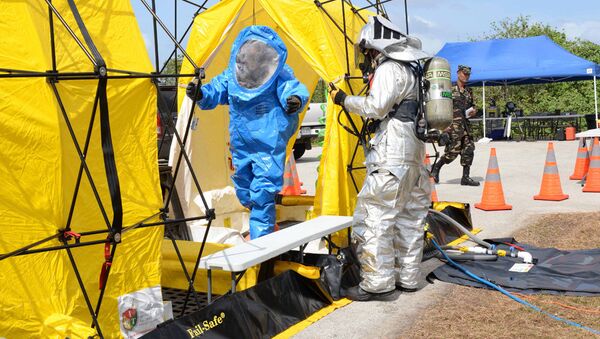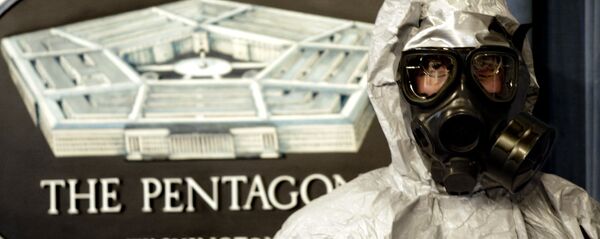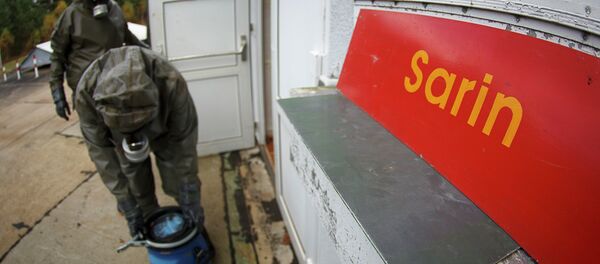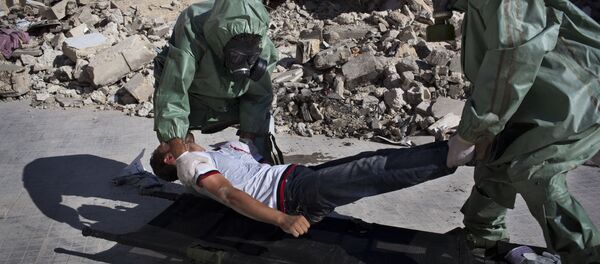A recent report prepared for the US Congress shows that budget cuts have forced the Pentagon to reduce funding for the Chemical and Biological Defense Program (CBDP).
"Reduced defense spending will constrain the ability of the CBDP to develop, procure, and sustain Joint Service priority capabilities that improve the ability of the Warfighter to counter," the report reads, echoing similar statements repeated in other branches of the military as they face budget cuts.
But those budget battles haven’t stopped the Pentagon from pursuing a new protective suit to defend soldiers against chemical and biological attacks. The Joint Program Executive Office for Chemical and Biological Defense will host a competition called Proof Challenge.
"We are seeking innovative ideas for solutions that will increase mobility, dexterity and tactility, allowing the Warfighter to complete all relevant tasks (including running, climbing, etc.) in a fast and comfortable manner," reads a statement announcing the competition.
"…We welcome ideas that improve the seamless integration between suit components, such as mask-helmet or glove-boot interface."
The Pentagon will spend $25,000 on prizes for competition finalists, with the winner receiving $150,000.
"Military leaders want ideas from all types of designers, researchers, students, and entrepreneurs in material science, textile design, material design and wearable," the statement reads.
"The inspiration for this competition is to attract new ideas to provide the best possible suits for America’s military."
The winning design will replace the Joint Service Lightweight Integrated Suit Technology (JSLIST), a six-pound suit that can be worn over a uniform to protect the wearer in the event of a chemical, biological, radiological, or nuclear attack.
The JSLIST is almost two decades old and widely considered to be in need of upgrades.
The United States, as well as the majority of international powers, have adhered to agreements devoted to preventing the spread of nuclear, chemical and other weapons of mass destruction.
In recent years, however, allegations of the use of chemical weapons have become a cornerstone of international forces, led by the US, to launch a military campaign in Syria to oust its leader Bashar al-Assad. The UN has found no proof that the Syrian government is responsible for poisoning civilians.






